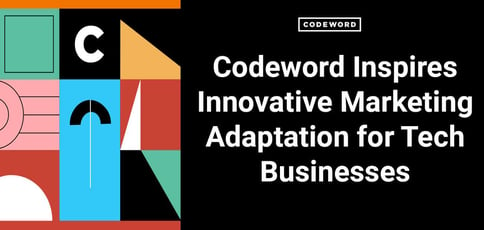
TL; DR: Marketing can feel like a game of cat and mouse, where you’re constantly trying to grab consumers’ attention and adapt to their shifting preferences, especially in today’s tech-savvy Information Age. Kyle Monson, the Founder of Codeword, a tech marketing and PR agency, provides insights into this ever-changing landscape and how his team stays ahead to meet consumer needs.
In the early-to-mid 2000s, BlackBerrys and Sidekicks were at the top of the smartphone game. Their internet connectivity, full-sized keyboards, and email management capabilities made them the go-to choices for teenagers, busy professionals, and anyone in between.
When Google’s Android emerged as a top phone of choice in 2010, it wasn’t just because of its high-tech touchscreen capabilities. Android’s success was a direct response to changing consumer demands. The tech company understood the need for a seamless and user-friendly mobile experience, which, in turn, led people to willingly pay premium prices out of loyalty and a desire to be a part of the Android community.
As Plato said: “Necessity is the mother of invention.”
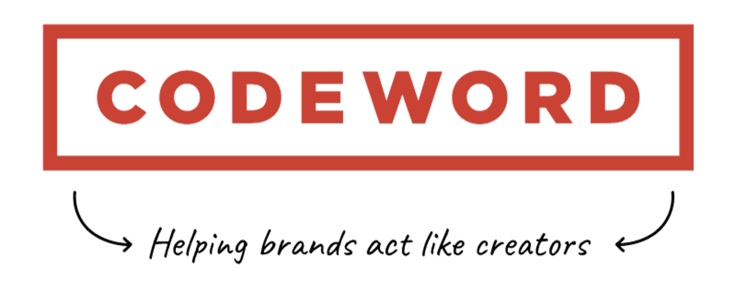
Tech marketing and public relations agency Codeword takes this adage to heart.
Founded in 2010, the agency spent nearly a decade growing its client roster, which is home to some of the biggest names in the tech industry. It was acquired by WE Communications in 2019, and less than a year later, the COVID-19 pandemic hit. That was when everything marketers thought they knew got thrown out the window.
“I believe we’re witnessing an active unwinding of some of the trends built in 2020. It was a moment of change and instability in the world, and we all heavily relied on our social media platforms to stay informed and connected,” said Kyle Monson, Founder of Codeword. “But now, in 2023, there are different expectations of social, and the way it’s being used is transforming for brands and people alike.”
Kyle added that Codeword was not immune to the sudden surge of digital dependence. “Our strategies are a lot different from what they were in the early stages of the pandemic. Everything’s up in the air, and we’re at a pivotal moment of change that’s happening very quickly. I don’t expect the dust to settle for 6 to 12 months.”
Just as society grappled with the challenges brought on by the global shutdown, Codeword was undergoing its own transformation. And surprisingly, it was during this time the agency found its groove.
Codeword’s Marketing Revolution in the Post-2020 Landscape
If you’ve ever worked in marketing, you may be familiar with the concept of the funnel. The marketing funnel visualizes a customer’s purchasing journey, starting with awareness (noticing a product) and concluding with conversion (making a purchase).
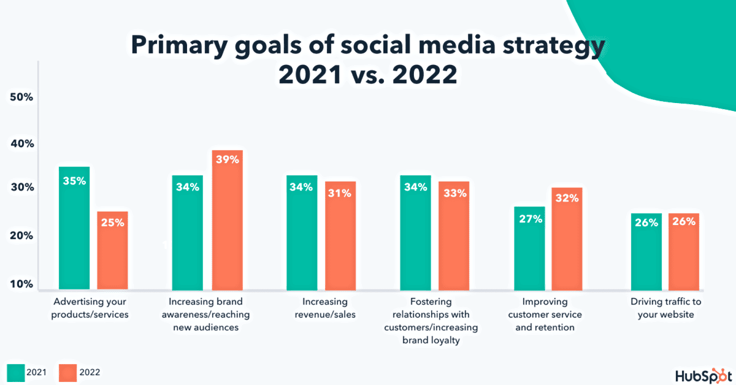
But in response to evolving consumer expectations, the conventional sales funnel is giving way to a ‘flywheel’ model that strongly emphasizes consumer loyalty and desire. This shift became especially evident following the COVID-19 pandemic.
Perhaps there’s a unique art and science behind it.
How to Craft Unforgettable Customer Journeys in the New Tech Age
The good news is that this shift is changing the rules of the game. Tech companies are no longer competing with their rivals. They’re racing to exceed their customers’ last best experience. That said, Kyle suggests the following tips for tech businesses to navigate this ever-changing marketing landscape.
Create A Memorable Experience
Kyle noted that creating an enjoyable and engaging experience, rather than just focusing on technical details, is becoming more important when marketing to specific audiences.
“We’ve been big believers that even for IT decision makers, you can give them something fun, interesting, and creative to consume. They’re people, too,” he emphasized.
One global tech company hired Codeword to do just that for a library of 80 IT white papers, with good insights but a stuffy format and a corporate language that nobody wanted to read.
Codeword’s solution to the white paper challenge was to make them… not white papers. Instead, the agency’s editorial team pored over the huge collection of content to repurpose the insights as photos, data visualizations, videos, animated shorts, and brief, punchy articles that better reflected what the audience wanted to read and share.
Get The Tone Right
Seventy-six percent of people say they would buy from a brand they feel connected to over a competitor. That’s why Codeword takes a fan-first approach, carefully tweaking its content to meet the needs of brands’ audiences based on strategy and data. The goal is to talk to them in ways that resonate and make them feel connected and seen.
At a tech keynote, the audience typically doesn’t seek in-depth technical explanations; instead, they want to hear about the product’s benefits and innovations.
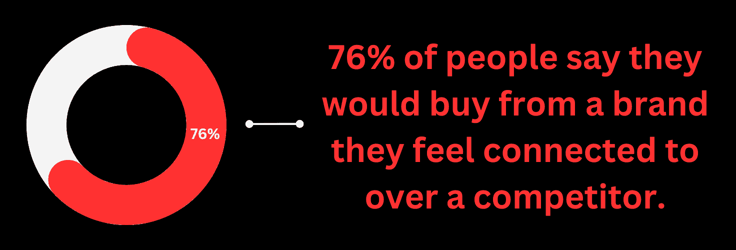
“Developer audiences like to see the sweat that goes into building something. When brands are talking to general consumers, there’s more marketing language.” Kyle said. “But developers don’t want romance or emotional stories; they want to know how this will impact them and how it will make their lives easier and better.”
After a decade of developing content for developers, Codeword’s ethos is simple: Speak their language. That’s hard for a lot of brands, even in the tech space, because the marketing teams and the agencies often aren’t developers and don’t know the lingua franca of the developer community.
Kyle says marketers have a responsibility to do the next best thing. “You have to immerse yourself in their world. Read what they’re reading, follow who they’re following, and get into their community in a way that marketers typically don’t.”
This approach continues to pay off for Codeword, as they produce scripts, messaging, websites, and media plans for some of the biggest developer events in the world.
Stick To The Right Platforms
Consumers are becoming more discerning about online presence, ultimately influencing how brands communicate. So what should tech companies do?
“It’s a great time to invest in your own properties where you have more control,” Kyle said. “It’s about getting in front of the audiences you want to reach, so avoid platforms where you’re not subservient to an algorithm that may or may not work in your favor.”
Kyle suggests that tech companies should stick to platforms with greater control over their brand, like Discord or LinkedIn. These platforms prioritize community building and offer the advantage of not relying on luck to connect with your target audience.
For example, one recent Codeword project helped a global tech community create a Discord channel. Discord is just one example of what people want today because it’s not just about transactional chats; it’s about building a sense of community in a world where online social connections are on the rise.
The (Sometimes) Tumultuous Journey of AI, Tech, and Marketing
While AI has found its way into almost every facet of our lives — from customer support portals to home devices like cameras and smart speakers — it’s still an uncertain reality for many not totally on board.
“I think ChatGPT shifted everyone’s reference of how they talk and think about AI in their personal lives, but at a point, generative AI can feel very Black Mirror or uncanny valley,” said Kyle.
And yet, its use cases are only going to multiply.
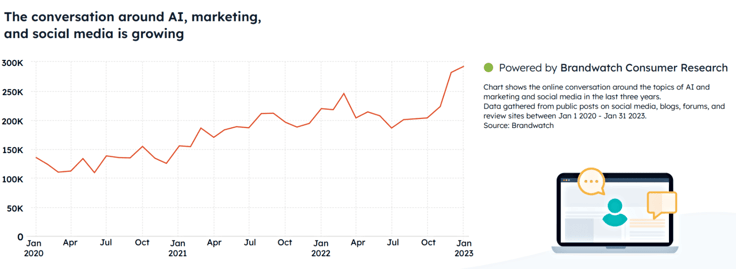
“AI and ML integration is a race at this point. Every company and product is trying to integrate what they think will be the best solution,” Kyle noted.
He’s got a point. One study suggests failure to scale AI could put 75% of companies out of business. Organizations may also fall behind in patents and inventions.
Naturally, Codeword wanted to jump on AI, too. In January 2023, it announced the first non-human interns. Perhaps unsurprisingly, some people were…wary.
“It became a big story in marketing, tech, and media. A lot of people hadn’t dug into the tools and realized the limitations of a traditional chatbot,” Kyle recalled. “So everyone freaked out and wondered: Are agencies going to replace humans?”
(Hint: No, probably not. But you can read more about what Codeword thinks about that.)
“In a world where we are all isolated online all day long, marketing tactics should shift to reach those audiences.”
— Kyle Monson, Founder of Codeword
In more recent news, Codeword introduced web development expertise to its full-stack content agency. According to Kyle, adding this was necessary to create the technical setup for hosting and managing content.
“You can’t build a full-stack content agency unless you can develop the environment in which the content lives,” Kyle said. “We’ve been building that out with dev expertise to work with WordPress, microsites, new platforms, CRMs, and CMSs.”
With this upgrade, Codeword has added new services to ensure they can meet all their clients’ content needs in the ever-changing tech world.
Codeword also has a ton of other goodies on its site. One is “Volume,” a staff-produced digital zine that offers a fresh perspective on tech, trends, media, and marketing. (Be prepared for some hilariously honest perspectives and deep dives into what may be next in tech and societal trends.)
There’s no doubt Codeword is at the top of its game and aims to be there for a long time. So, if you want a team that can amplify your brand, you should give Codeword a chance.



